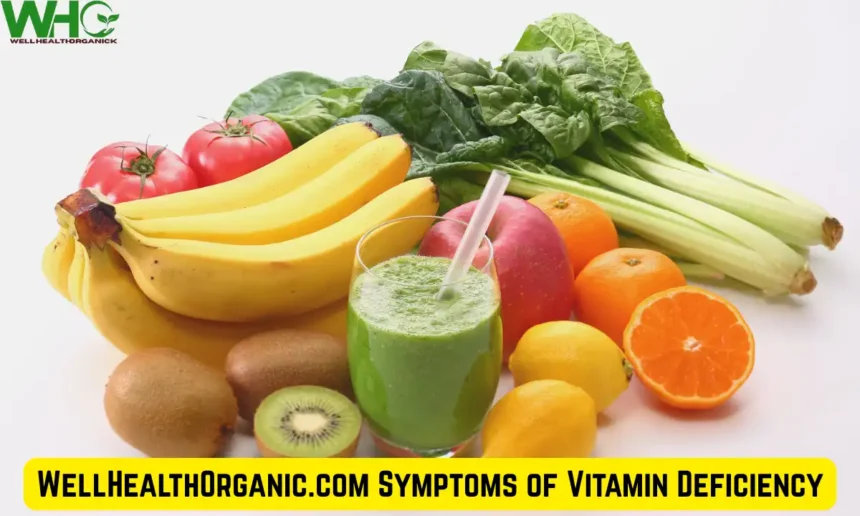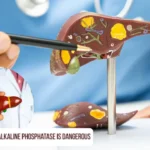Vitamins are micro-nutrients (nutrients that our body needs in small amount), essential for proper function of our bodies. This article will cover, Vitamin deficiency, its symptoms and treatment.
What is WellHealthOrganic.com Symptoms of Vitamin Deficiency?
Vitamin deficiency occurs when our body doesn’t get enough vitamins(essential micro- nutrients) to function properly. Vitamins are essential for bodily functions, as our body can not make vitamins on its own, we consume it through our diet.
Vitamin deficiency usually occurs due to imbalanced diet or less amount of Vitamins available in the diet. However, there could be other reasons that could result in vitamin deficiency.
Types Of Vitamins and Their Scientific Names
| Vitamins | Scientific Names |
|---|---|
| Vitamin A | Retinol |
| Vitamin B1 | Thiamine |
| Vitamin B2 | Riboflavin |
| Vitamin B3 | Niacin |
| Vitamin B5 | Pantothenic Acid |
| Vitamin B6 | Pyridoxine |
| Vitamin B7 | Biotin |
| Vitamin B9 | Folic Acid |
| Vitamin B12 | Cobalamin |
| Vitamin C | Ascorbic Acid |
| Vitamin D | Calciferol |
| Vitamin E | Tocopherol |
| Vitamin K | Phytonadione |
Also Read About: WellHealthOrganic Surgery for Wrist and Ankle Injuries
Symptoms of Vitamin Deficiency
Every vitamin has a key role in maintaining our body functions. Deficiency of these vitamins could lead to various symptoms. Below is listed different vitamins and their deficiency.
Vitamin A
- Night blindness
- Dry eyes, dry skin
- Frequent infections
- Keratin buildup (“gooseflesh” patches)
Vitamin B-Complex
B1 (Thiamine)
- Fatigue, irritability
- Muscle weakness
- Nerve damage (tingling, burning)
- Heart issues in severe deficiency
B2 (Riboflavin)
- Cracked lips & mouth corners
- Sore throat
- Red or swollen tongue
- Light sensitivity
B3 (Niacin)
- Skin rash (photosensitive)
- Diarrhoea
- Mental changes (confusion, irritability)
B5 (Pantothenic Acid)
- Fatigue
- Numbness/tingling
- Headaches
B6 (Pyridoxine)
- Skin rashes
- Cracks around the mouth
- Depression, irritability
- Nerve problems (tingling)
B7 (Biotin)
- Hair thinning/loss
- Skin rash (often around eyes, mouth)
- Brittle nails
B9 (Folic Acid)
- Fatigue
- Pale skin
- Mouth sores
- Poor concentration
B12 (Cobalamin)
- Numbness/tingling in hands/feet
- Balance problems
- Fatigue, weakness
- Pale or yellowish skin
- Memory issues
Vitamin C
- Fatigue
- Easy bruising
- Bleeding gums
- Dry and rough Skin
- Joint pain
Vitamin D
- Fatigue
- Bone pain
- Muscle weakness or cramps
- Low mood/depression
- Frequent illness
Vitamin E
- Nerve/muscle problems
- Vision issues
- Weak immune function
Vitamin K
- Easy bruising
- Excessive bleeding
- Slow wound clotting
Causes of Vitamin Deficiency
There could be various causes behind vitamin deficiency, vitamins are not built in our bodies, Vitamin are consumed through diet. Various causes that can result in vitamin deficiency are:
- Poor Diet
- Malabsorption (Body can’t absorb vitamins properly due to conditions like Chronic Pancreatitis, Crohn’s disease)
- Liver or gallbladder diseases (affects fat-soluble vitamins A, D, E, K)
- Medication Effects
- Alcohol Use
- Digestive or Stomach Problems (Gastritis, chronic diarrhoea)
- Sunlight Deficiency (vitamin D deficiency)
- Surgeries
Complications and Risks with Vitamin Deficiency
Vitamins are essential nutrients for our body. Though vitamins are needed in very small amount, still their deficiency could result in short-term and long-term complications and health issues like:
- Weak immunity
- Fatigue and weakness
- Anaemia
- Nerve damage / weak nervous system
- Bone problems (like arthritis)
- Skin and hair issues
- Poor wound healing
- Bleeding problems
- Paralysis
- Blindness or bad vision
Treatment of Vitamin Deficiency
Vitamin Deficiency is very common and could be treated with proper care and treatments.
- Taking balanced nutritious diet can help cure and prevent vitamin deficiency
- Taking fortified diet that has added vitamins to it.
- Taking vitamin supplements.
- Intravenous vitamin infusions and injections (prescribed by the physician in case of high deficiency).
When to seek medical care?
Although, vitamin deficiency is very common and often gets cured with balanced diet and fortified foods, but a medical consultation is necessary to detect the deficiency and for its proper treatment. In some cases, immediate medical help is needed, like:
- If symptoms persist more than a few weeks.
- If you suspect B12 or iron deficiency (as these can cause nerve or heart issues).
- During pregnancy or breastfeeding.
- You want supplements (some vitamins can be harmful in high doses and should be monitored with a doctor’s guidance).
Conclusion
Vitamin deficiencies are more common than many people realize, and they can quietly affect energy levels, immunity, skin, mood, and overall health. Understanding the symptoms and taking early action through proper diet, supplements, and medical guidance is the key to preventing long-term complications. With the right awareness and timely treatment, maintaining a balanced level of essential vitamins becomes easy and highly beneficial for overall well-being.
FAQs
What causes vitamin deficiency?
Vitamin deficiency can be caused by poor diet, digestive issues, chronic illnesses, certain medications, and lack of sunlight (for Vitamin D)
How can I know if I have a vitamin deficiency?
Common signs include fatigue, hair fall, weak immunity, muscle weakness, pale skin, and mood changes. A blood test confirms the deficiency.
Can vitamin deficiencies be cured?
Yes, most vitamin deficiencies are easily treatable through dietary changes, supplements, and addressing underlying health issues.
Which vitamin deficiency causes fatigue the most?
Vitamin B12, Vitamin D, and Iron deficiencies are the most common causes of chronic tiredness and low energy.
Is it safe to take vitamin supplements daily?
Supplements are generally safe when taken in recommended doses, but it’s best to consult a doctor to avoid overuse or imbalance.
Also Read This: WellHealthOrganic.com Protein || WellHealthOrganic Best Health Care








